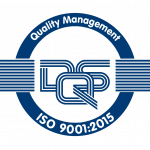Search Other Materials
Kapton Polyimide Characteristics
Kapton® polymide (PI) withstands both high and low temperature extremes. It has a use range of -452 to 752 degrees Fahrenheit, maintaining excellent physical, electrical and mechanical properties across this broad range.
Kapton® is an effective insulator and has excellent radiation resistance which makes it a good choice for parts and components in demanding applications across many industries, including aerospace.
Kapton® is an unfilled polyimide thermoplastic material.
Tolerates both extreme heat and extreme cold
- Excellent physical and mechanical properties
- Radiation and chemical resistance
- UL 94V-O Flame class rating
- An effective insulator
- Well-suited to diverse applications
See the chart below for material properties of Kapton polyimide board.
Applications for Kapton® Polyimide Board
- Motor slot liners
- Insulation for transformers, capacitors, formed coil and magnet wire
- Wire and cable tapes
- Semiconductor components
- Flexible printed circuits
Contact a Dielectric Manufacturing knowledge expert to discuss the use of Kapton polyimide for fabrication of your plastic parts. Call 800-367-9122 or email sales@dielectricmfg.com.
We also are a distributor of Kapton polyimide. Contact us to discuss how we can fulfill your material needs.
Polyimide (PI) Material Properties
Dielectric Manufacturing, Richfield, Wisconsin USA dielectricmfg.com Material Properties Provided By Dielectric Manufacturing, Richfield, Wisconsin
Property Metric units English units
General
Density 1.33e3 - 1.43e3 kg/m^3 0.048 - 0.0517 lb/ft^3
Mechanical
Yield Strength 8.62e7 - 8.96e7 Pa 12.5 - 13 ksi
Tensile Strength 7.24e7 - 1.18e8 Pa 10.5 - 17.1 ksi
Elongation 0.075 - 0.9 % strain 7.5 - 90 % strain
Hardness (Vickers) 2.54e8 - 2.64e8 Pa 25.9 - 26.9 HV
Impact Strength (un-notched) 7.9e3 - 9e3 J/m^2 3.76 - 4.28 ft.lbf/in^2
Fracture Toughness 2.16e6 - 6.4e6 Pa/m^0.5 1.97 - 5.82 ksi/in^0.5
Young's Modulus 2.07e9 - 2.76e9 Pa 0.3 - 0.4 10^6 psi
Thermal
Max Service Temperature 221 - 241 °C 430 - 466 °F
Melting Temperature 375 - 401 °C 707 - 754 °F
Insulator or Conductor Insulator Insulator
Specific Heat Capability 1.39e3 - 1.45e3 J/kg °C 0.333 - 0.346 BTU/lb. °F
Thermal Expansion Coefficient 8.1e-5 - 1.01e-4 strain/°C 45 - 56 µstrain/°F
Eco
CO2 Footprint 9.08 - 10 kg/kg 9.08 - 10 lb/lb
Recyclable Yes Yes





